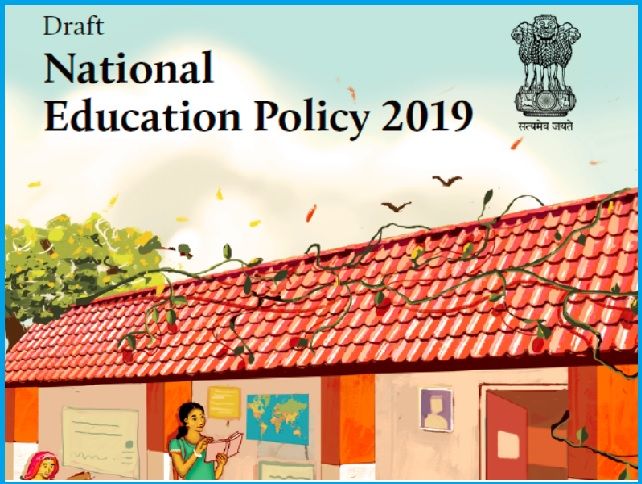Drafted under the chairmanship of Dr Krishnaswamy Kasturirangan; the NEP calls for the Extension of Right to Education Act 2009 to cover children of ages 3 to 18. – A 5+3+3+4 curricular and pedagogical structure based on cognitive and socio-emotional developmental stages of children:
- Foundational Stage (3-8 years) : 3 years of pre-primary plus Grades 1-2
- Preparatory Stage (8-11 years): Grades 3-5
- Middle Stage (11-14 years): Grades 6-8
- Secondary Stage (14-18 years): Grades 9-12
Schools will be re-organized into school complexes. It also seeks to reduce the content load in the school education curriculum.
New Education Policy on Extra Curricular Activities in schools.
There will be no hard separation of learning areas in terms of curricular, co-curricular or extracurricular areas and all subjects, including arts, music, crafts, sports, yoga, community service, etc. will be curricular. It promotes active pedagogy that will focus on the development of core capacities: and life skills, including 21st-century skills.
NEP on Teacher Education
The NEP Committee proposes for massive transformation in Teacher Education Shutting down sub-standard teacher education institutions and moving all teacher preparation/education programmes into large multidisciplinary universities/colleges. The 4- year integrated stage-specific B.Ed. programme will eventually be the minimum degree qualification for teachers.
NEP on the creation of the Rashtriya Shiksha Aayog
An apex body is proposed to enable a holistic and integrated implementation of all educational initiatives and programmatic interventions. The main role of this body would be to coordinate efforts between the Centre and States.
NEP on new policy level interventions
- The internationalisation of higher education is required to enhance the quality of the existing schools and colleges.
- Strengthening quality open and distance learning to encourage more students to finish education and continue higher education in areas where access is a problem.
- Technology integration at all levels of education including driving student learning outcome and their development.
- Adult and lifelong learning and initiatives to make learning a life long affair and not stopping at school or college.
- Enhance participation of underrepresented groups, and eliminate gender, social category and regional gaps in education
Amongst the things discussed were the emphasis on education from 3 years of age, building a strong foundation up-to class 5 and then to have programs on skills building by incorporating extracurricular activities in schools. There is also an impetus on improving teacher education in the country.

